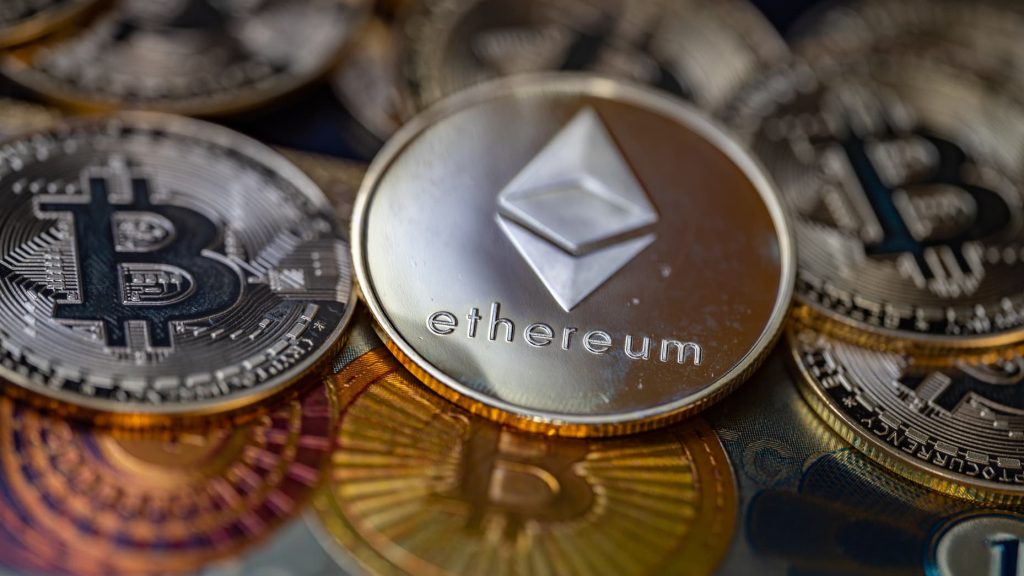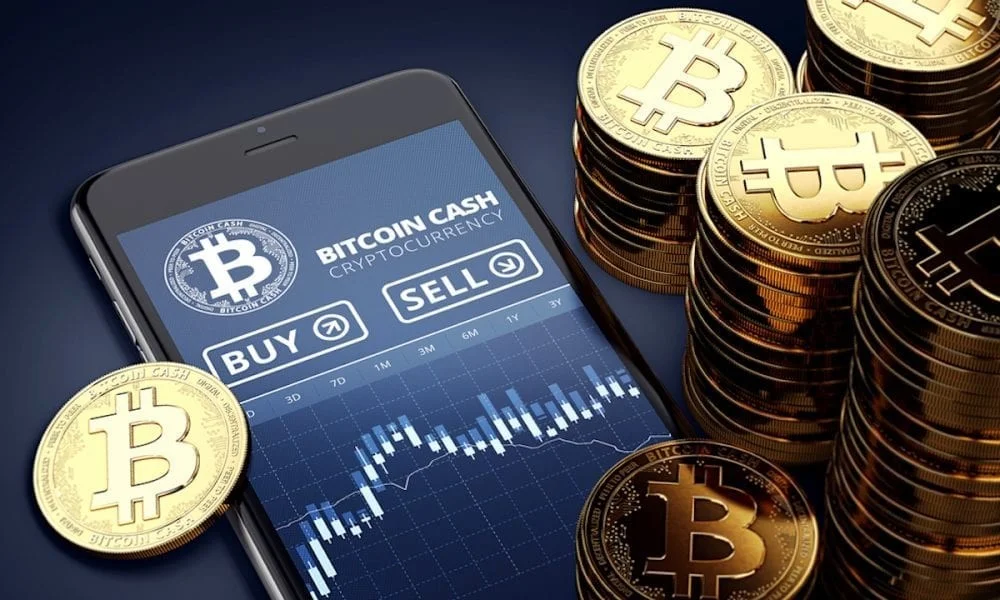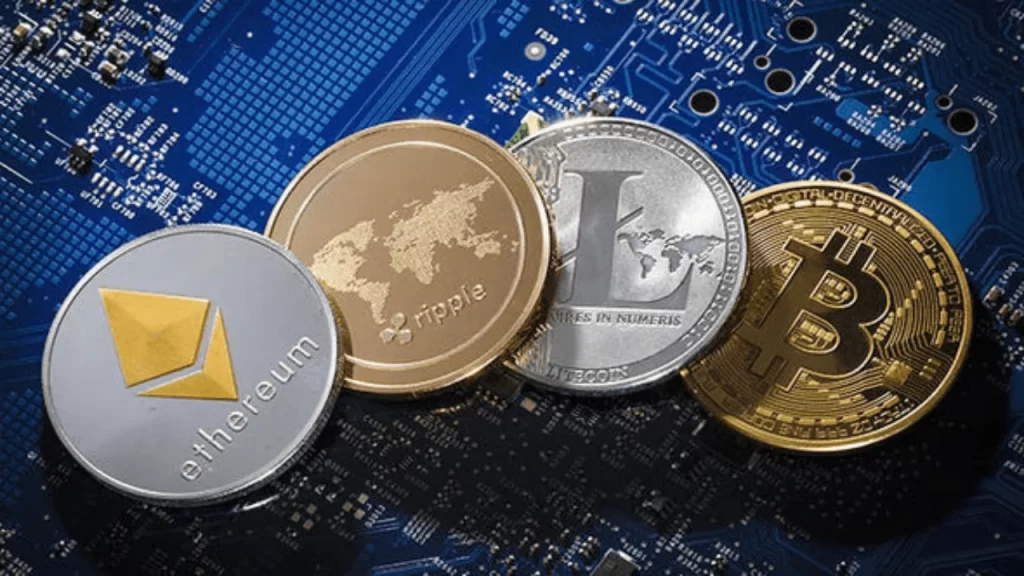What is cryptocurrency?

It’s hard to spend ten minutes in a café today without hearing someone mention buying and selling digital currency.
Cryptocurrency is a new revolution in the economy, and for many reasons, we all need to understand it better.
But what is cryptocurrency?
How can we mine it?
What makes crypto different from other types of money?
In this article, we will explain what digital currency is, how it is used, and how it is changing the world.
If you’re new to this world of digital money, stay with DigiAlpha until the end of the article on cryptocurrency for beginners.
What is digital currency?
First things first, let’s answer what is digital currency.
Digital currency, or cryptocurrency, is a kind of digital money made to help people trade more easily. People can buy, sell, or even “mine” this digital money. They can also send and receive it using a special wallet for digital currency.
There are currently over 2,200 digital currencies in the market, but many of them are inactive or abandoned projects. In the ten years of cryptocurrency history, a few have managed to maintain their positions among the top valuable currencies since their introduction.

Bitcoin
Bitcoin is the most famous and oldest digital currency, always in the spotlight. It was created by Satoshi Nakamoto over ten years ago, and since then, it has never lost its top position among cryptocurrencies.
Bitcoin is popular because of
- its potential for profit,
- its independence from banks,
- its limited supply,
- and its ability to make transactions easier and cheaper.
Ethereum
The idea for Ethereum was proposed by Vitalik Buterin in 2013. Its initial coin offering took place in 2014, and the network launched in July 2015. From the beginning, Ethereum introduced innovative ideas. The digital currency for this platform is called Ether, and Ethereum can be used to create tokens.
Ripple
Ripple is an open-source platform designed for cheap and fast transactions. This payment system was launched in 2012 and supports various fiat currencies. Ripple focuses on collaboration with banks and developing its payment system, with its coin named XRP.
Litecoin
Litecoin was created by Charlie Lee with the goal of enabling faster payments by making changes to Bitcoin’s code. This digital currency is known as digital silver and is one of the oldest altcoins.
Bitcoin Cash
Bitcoin Cash is a well-known fork of Bitcoin that emerged in 2017 by changing the block size. In 2018, Bitcoin Cash split into two chains: ABC and SV, with the ABC chain continuing under the name Bitcoin Cash.
Why do people invest in cryptocurrencies?
For several reasons.
First, many see it as a way to make money. They believe that the value of cryptocurrencies will increase over time, so they buy them hoping to sell later at a higher price. For example, Bitcoin has grown a lot in value since it started, and this attracts many investors.
Second, some people like the idea of being part of a new technology. Cryptocurrencies are based on blockchain technology, which many think can change the way we do business and handle money. This makes some investors excited about the future of crypto.
Third, cryptocurrencies can provide more privacy and security than traditional banking. Some people prefer not to share their financial information with banks, and they feel cryptocurrencies give them more control over their money.
Finally, some people invest in cryptocurrencies to diversify their portfolios. This means they want to spread their investments across different types of assets, which can help reduce risk.
What are the differences between digital currencies and regular money?
First, transactions with digital currencies are irreversible. Once you send digital currency and the transaction is confirmed, you cannot undo it unless the person you sent it to agrees. In banks, if you send money by mistake, you can often get it back. But if you send Bitcoin or another cryptocurrency to the wrong address, it’s usually gone for good!
Second, digital currencies can offer anonymity or semi-anonymity. Wallet addresses, like bank account numbers, don’t show your personal information. These addresses are made up of letters and numbers, and you can only connect them to real people by looking at transaction histories. Some cryptocurrencies, like Monero and Zcash, are designed to keep users’ identities private and make it very hard to find out who they are.
Third, digital currencies are global and can be sent anywhere in the world. Sending money using traditional systems can take days, but with digital currencies, it can be done in just a few minutes. There are no borders, so you can send them from anywhere to anywhere.
Fourth, digital currencies are secure. This security comes from the shared computer power of people using the system. Public and private keys let you control your digital money, so no one else can access it.
Finally, digital currencies are not exclusive. You do not need permission from anyone to use different digital currency networks like Bitcoin or Ethereum. You can download the transaction history and send or receive digital currency without asking anyone for permission.

How do digital currencies work?
Digital currencies work on a technology called blockchain, which is a decentralized system. Unlike regular money, digital currencies don’t rely on banks or governments for support. They only exist in the digital world, where people can buy, sell, and hold them. But how are they created?
Digital currencies are created through a process called mining. This process uses computers with high processing power and graphics to solve complex math problems and “mine” or create digital currency. People can also buy cryptocurrencies from sellers in the digital currency market, keep them in encrypted wallets, or sell them later.
For example, the Bitcoin network uses a method called Proof of Work. This means that miners solve math problems to check network transactions, and, in return, they earn some Bitcoin as a reward.
Users can also use Proof of Stake services. Here, they keep their digital assets in wallets for a period to earn rewards. This reward might be a small percentage of a coin or token, depending on how much the user holds.
Influential figures in cryptocurrencies
Since digital currencies started and became popular around the world, some people have had a big impact on their growth. Here are some of them:
| Name | Impact |
| Satoshi Nakamoto | The creator of Bitcoin (BTC), the first cryptocurrency and blockchain. |
| Vitalik Buterin | The main founder of Ethereum, the second-largest cryptocurrency. |
| Changpeng Zhao (CZ) | The founder of Binance, a well-known cryptocurrency exchange. |
| Jed McCaleb | The founder of Mt. Gox, which was one of the first places for Bitcoin trading. |
| Sam Bankman-Fried | The founder of the FTX cryptocurrency exchange. |
How trusted is cryptocurrency?
Since the digital currency industry is a relatively new technology, many factors and people want to influence their value. Because of this, many users want to know what cryptocurrencies are used for and what factors can affect their prices. They also want to know when to buy, sell, or hold their assets. It’s important to remember that as the demand for cryptocurrencies increases, their prices will go up.
Some cryptocurrencies are produced in limited amounts. For example, Nakamoto designed Bitcoin so that only 21 million coins will ever be created. This limited supply helps increase the price of Bitcoin over time.
Additionally, it’s important to note that if whales (investors who hold a large percentage of a coin) sell their assets, the price of that asset may drop because of the increased amount in the market.
Types of cryptocurrencies
The world of cryptocurrency for beginners seems frighteningly enourmous. To succeed,before you trade digital currencies, it’s important to research the type and use of the asset based on your goals, because not all digital assets are meant for investment.
Digital currencies can be divided into two main groups:
Coins
A coin is a type of digital currency that has its own blockchain. For example, Ether (ETH) is a cryptocurrency that works on the Ethereum blockchain, so it is a coin. Coins are usually split into two main categories:
- Bitcoin: This is the first cryptocurrency in the world.
- Altcoins: These are all digital currencies that are not Bitcoin. Many altcoins are created to improve Bitcoin, like ETH, ADA, BNB, and SOL.
Tokens
Tokens are digital assets built on other blockchains. They can be programmed and can run smart contracts, which are agreements that help show ownership of a coin or a specific asset.

Yet, all in all, we have 10 popular types of cryptocurrencies (source):
- Bitcoin (BTC) – The first and most well-known cryptocurrency, often referred to as digital gold.
- Ethereum (ETH) – Known for smart contracts and decentralized applications.
- Binance Coin (BNB) – Used primarily for trading on the Binance exchange, offering discounts and rewards.
- Tether (USDT) – A stablecoin pegged to the US dollar, used for trading and maintaining value.
- Cardano (ADA) – Focuses on sustainability and scalability through a proof-of-stake mechanism.
- Solana (SOL) – Known for its high speed and low transaction costs, supporting decentralized applications.
- Ripple (XRP) – Designed for cross-border payments and remittances.
- Polkadot (DOT) – Facilitates different blockchains to communicate and share information.
- Dogecoin (DOGE) – Started as a meme but gained popularity for its community and tipping culture.
- Litecoin (LTC) – Created as a “lighter” version of Bitcoin for faster transactions.
You might be asking which of these cryptocurrency examples to choose and where to register on a crypto exchange.
To answer these questions, you can contact our experts at DigiAlpha.
Still more on Bitcoin…
But what is Bitcoin? Bitcoin was created in 2009 by Satoshi Nakamoto. Unlike traditional money, Bitcoin’s price isn’t controlled by anyone; it’s determined by how much people are willing to pay for it in exchanges. One important thing about Bitcoin is that there’s a limited number of them—only 21 million will ever exist. This helps keep its value stable and prevents inflation. To understand Bitcoin better, we need to talk about blockchain.
Blockchain is the technology behind Bitcoin. Imagine a classroom with 30 students. If the teacher asks everyone to take a picture of the notes on the board, each student ends up with the same picture. Even if the notes are erased later, those pictures remain. Similarly, a blockchain is like a digital ledger that is shared across many computers (called nodes). When someone makes a transaction, it gets recorded on all these computers. This makes it really hard to change or delete the information, keeping it secure and transparent.
What is cryptocurrency mining and the Role of Miners in Bitcoin Production
Cryptocurrency mining is the process used to create new crypto and verify transactions. To do this, powerful computers solve complex math problems to confirm transactions and add them to the blockchain. These computers are called miners. They ensure that everything runs smoothly and securely.
When miners successfully solve these problems, they get rewarded with new Bitcoins. This reward system encourages them to keep mining and maintaining the security of the network.
If you want to start mining Bitcoin, you don’t need to be an expert, but you do need to know that you can’t do it with just any computer. Mining requires specialized machines that can handle a lot of calculations. These machines also use a lot of electricity and need to be kept cool to work properly.
Advantages and disadvantages of digital currencies
Like anything, this new type of money has both good and bad sides. First, let’s reveiw the important advantages of cryptocurrency:
Advantages of cryptocurrency:
- Fast and Easy Transactions: Digital currency transactions are usually quick and simple. For example, you can send Bitcoin between digital wallets using just a smartphone or computer. Public and private keys, along with methods like Proof of Work (PoW) and Proof of Stake (PoS), help keep these transactions secure. Because of this, many big companies and industries like fashion and pharmaceuticals are starting to accept cryptocurrency payments.
- Transparency on the Blockchain: Every transaction with digital currency is recorded on a network called blockchain. This helps make transactions and assets more secure and removes the need for banks and online marketplaces.

Now, it cannot be said that digital currencies really have disadvantages. We prefer to use the word “challenges” instead of disadvantages because you should be cautious when dealing with these challenges. Therefore, the four main challenges of digital currencies are:
- Price Changes: If the value of cryptocurrencies drops against the dollar, the value of your digital assets will also go down.
- Network Problems: Blockchain networks can sometimes face issues, which can cause problems with cryptocurrency transactions.
- Scams and Fake Tokens: Because blockchain is open to everyone, some people create fake tokens (often called “shitcoins”) to trick new users into investing. Scammers often use social media like Instagram, Facebook, and Twitter to deceive people.
- Mistakes in Transactions: If you make a mistake when choosing the network or entering the wallet address when sending cryptocurrency, your money might get lost, and it is often not recoverable.
How to buy digital currency?
With the increasing number of users in the cryptocurrency market, there are several ways to buy digital currencies. You can create an account on reputable exchanges and purchase the cryptocurrencies you want.
You also have the option to create your own online exchange to buy and sell digital currencies without any intermediaries.
At DigiAlpha, we offer four different options for buying and selling your digital assets:
- Exchange Platform: A traditional platform where you can buy and sell cryptocurrencies.
- P2P Exchange Platform: A peer-to-peer platform that allows you to trade directly with other users.
- OTC Exchange Platform: An over-the-counter platform for larger trades without affecting the market price.
- Investment Platform: A platform focused on long-term investments in digital assets.
For more information about each of these options, simply click on the name to be taken to the corresponding page.
Is cryptocurrency a good investment?
Investing in cryptocurrency can be a good idea, but it also has many risks. The value of cryptocurrencies can go up and down very quickly. This means you might make a lot of money, but you could also lose a lot. Many people like investing in cryptocurrency because it is not controlled by banks or governments, and it can have a lot of potential for growth if more people start using it.
However, you need to be careful. The market is very unstable, which makes it hard to predict what will happen. Prices can change suddenly, so it’s important to think about whether you are ready for that risk. Also, cryptocurrencies do not have the same protections as traditional money in banks. If you lose access to your cryptocurrency, it is often hard or impossible to get it back.
Conclusion
Digital currencies are popular because they can change a lot in price, the technology is interesting, and they offer freedom from traditional systems. Many people today want to buy digital currency.
The cryptocurrency market is very new, so it has big price changes. In one day, the price of some digital currencies can go up by a lot or down by a lot.
Also, the idea of being free from banks and middlemen makes many people who don’t trust traditional money systems interested in digital currencies.
Thank you for staying with us until the end of this article.
We invite you to check out our other posts as well!